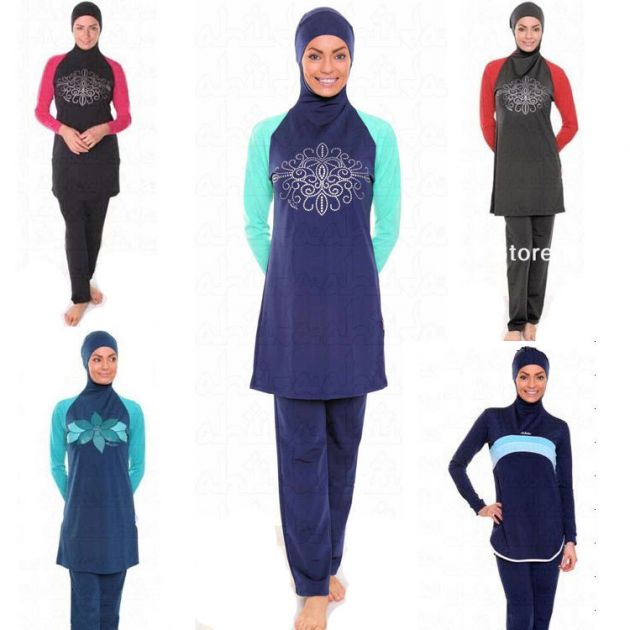UN body applauds France's suspension of burkini ban, but some towns still forbid it

GENEVA - The United Nations Human Rights Council has hailed a ruling by France's highest administrative court that suspends a contentious ban on burkini swimwear that is sometimes warned by Muslim women.
The U.N. joined other groups in warning that the ban had fueled religious intolerance and stigmatization.
"These decrees do not improve the security situation but rather fuel religious intolerance and the stigmatization of Muslims in France, especially women," Rupert Colville, spokesperson for the UN rights office, told journalists.
"Dress codes such as the anti-burkini decrees disproportionately affect women and girls, undermining their autonomy by denying them the ability to make independent decisions about how to dress, and clearly discriminate against them," he said.
"We welcome last Friday's decision by France's highest administrative court, the Conseil d'Etat, to suspend the ban adopted in the seaside town of Villeneuve-Loubet on supposedly inappropriate beachwear – which had been widely interpreted as targeting the burkini and other forms of dress worn by Muslim women," said Colville.
The burqini swimsuit was designed for women in Australia and covers the whole body except the face, the hands and the feet and is made of light material that makes it easy to swim in.
It was designed to be harmony with Islamic traditions of modest dress.
France bans the wearing of veils that cover faces in public and sought to do the same for burkinis triggering an uproar.
"The shocking images" of police undressing a burkini-clad Muslim woman on a Nice beach will fuel support for the extremist group known as ISIS, or Daesh, Britain's Independent newspaper reported.
Seeing four armed men forcing a woman to remove her clothes in public feeds the extremist narrative that the West is at war with Islam, The Independent commented.
"It is dangerous and smacks of thoroughly illiberal hysteria," it said.
The Israeli newspaper Haaretz carried the same view in its pages.
"The enforcement of this law is not just insensitive and immoral, it feeds the hate that drives some into the open arms of Islamic State recruiters," said Haaretz.
The mayor of one seaside town on the French Riviera said he would stick by his town's burkini ban, telling beachgoers, "if you don't want to live the way we do, don't come."
"You have to behave in the way that people behave in the country that accepted you, and that is it," Cogolin Mayor Marc Etienne Lansade told CNN.
"If you are accepted in Rome -- do like Romans do," he said, adding, "go in Saudi Arabia and be naked and see what will happen to you."
Lansade belongs to the right-wing National Front political party and is keeping the ban despite a ruling by the French administrative court that mayors do not have the right to outlaw burkinis.
The U.N.'s Colville said, "We urge all remaining local authorities which have adopted similar bans to repeal them immediately, rather than exploit the limited geographical scope of this particular decision in order to keep their highly discriminatory bans in place until the end of the current holiday season."